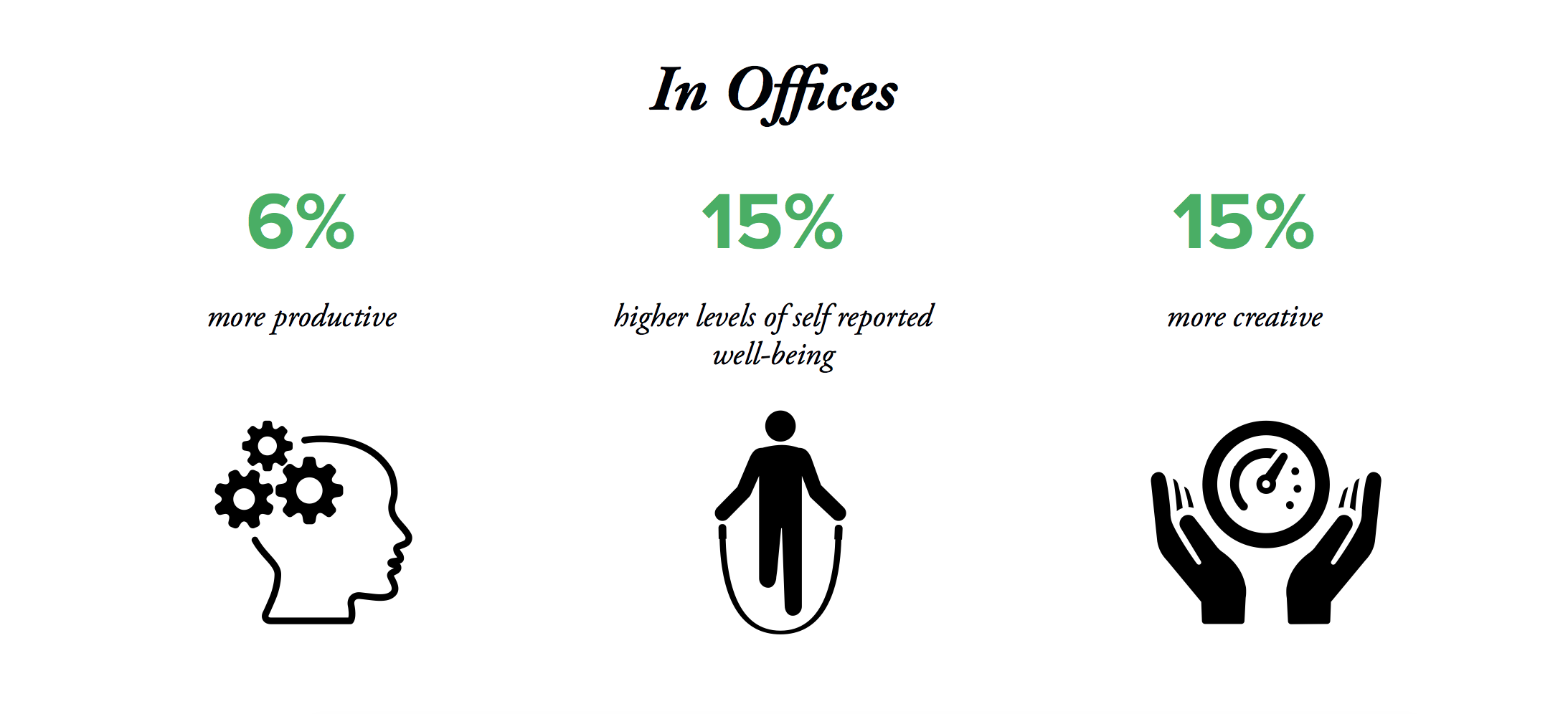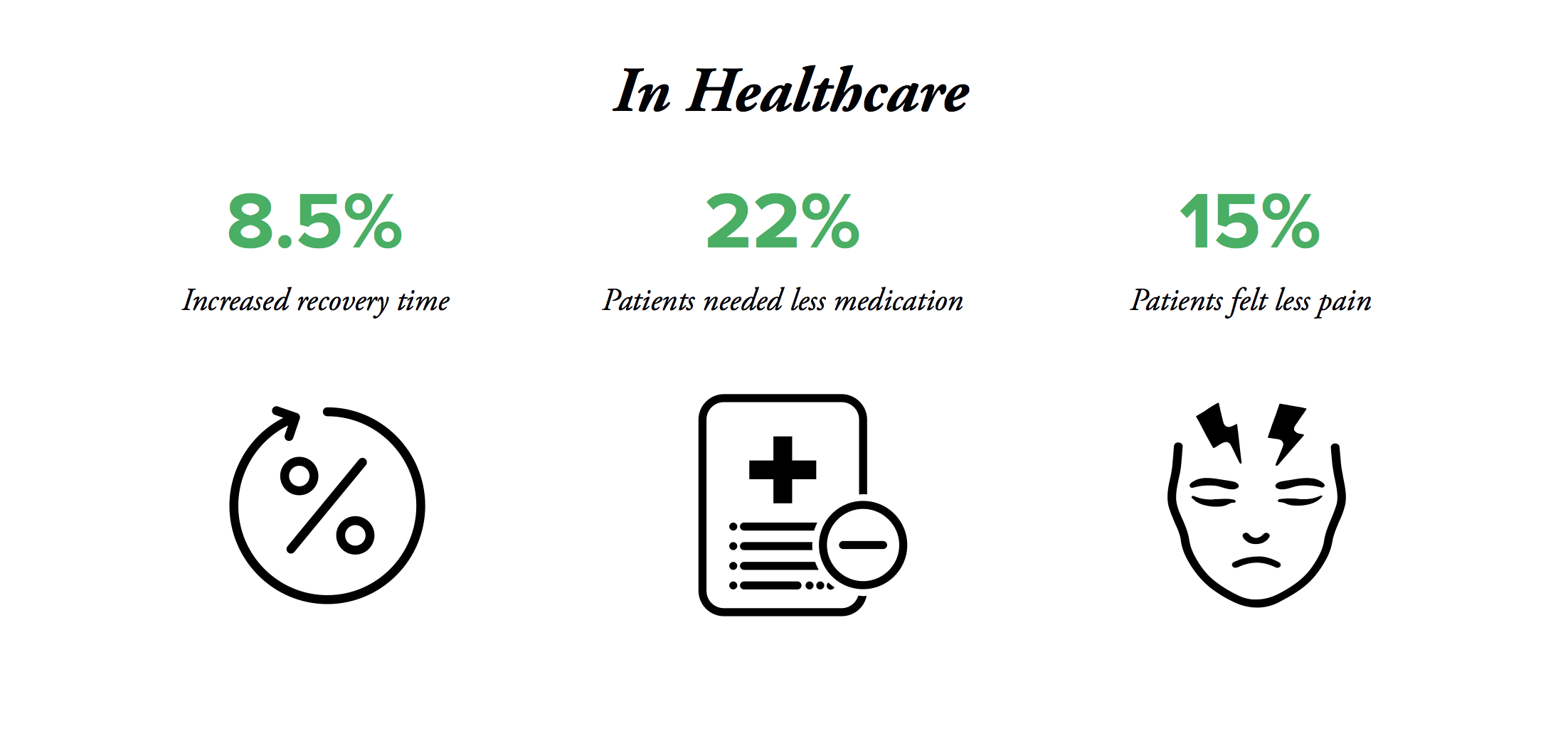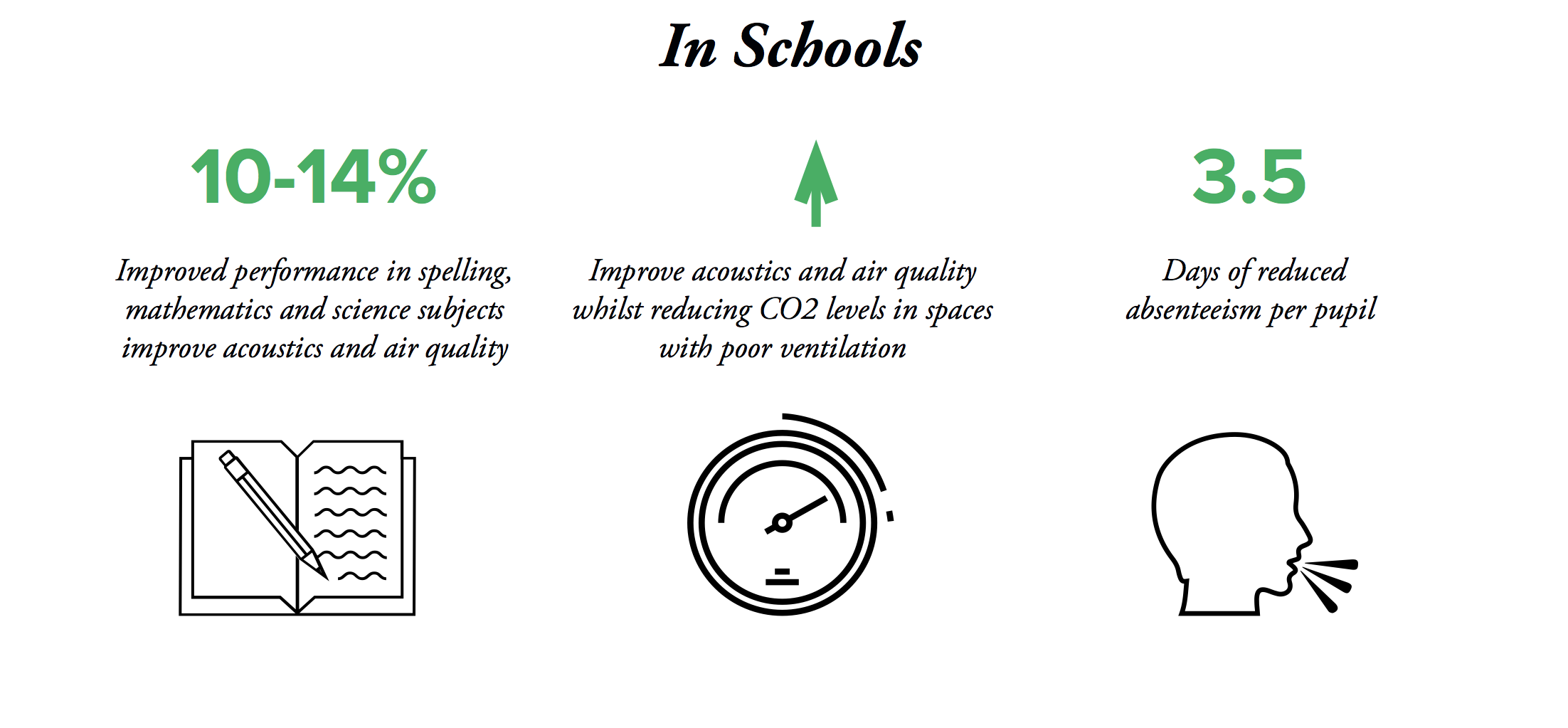Our Philosophy
Turning the Grey Green
We are a young company with big ambitions to become an environmentally sustainable force in green infrastructure. We deliver high-quality projects that focus on providing the benefits of plants to a space and the people who inhabit it in an environmentally conscious and professional manner.
Plants are vital to our lives, providing for many of our needs and producing a clean and healthy environment that keeps us both physically and psychologically healthy. However, the development of large cities and urban lifestyles has led to an estrangement from plants and obscured our relationship with them. This has manifested itself into problems for urban areas and is causing a reduction in the quality of life of billions worldwide.
Reintegrating plants into our lives is a cost-effective, ecologically friendly, and aesthetically pleasing solution to many of these issues. As a company, we combine scientific and horticultural expertise with business integrity and high-quality design to provide these solutions to our clients. We continually convert the fast-growing body of scientific research on green infrastructure into real-world projects. Our intelligent planting structures make areas greener and cleaner - benefiting both people and the local environment.
We are, therefore, part of a movement to make cities healthier, happier and greener places to live and hope to become part of a broader societal trend towards embracing plants to live a more fulfilled life.
Our Sustainability Commitment
At Meristem Design we understand the ecological challenges facing the world and so want to practice in a sustainable manner that ensures we leave the world in a better place than we found it.
Our 6 point sustainability commitment:
1. Source locally wherever possible
2. Use ecologically friendly solutions to plant pests and problems
3. Minimise carbon footprint of travel and deliveries
4. Use sustainable urban greening products
5. We stick to digital, and no paper trail
6. Using irrigation products that utilise water efficiently
What are the benefits of plants?



Those who worked in offices that provided natural light, live plants and water features had significantly higher levels of productivity.
Outdoor green space and indoor live plants were associated with higher reported levels of happiness, creativity and motivation at work.
An absence of outdoor green space and indoor plants was in fact associated with greater levels of stress.
The absence of water, live plants and natural light was associated with greater absence from work due to illness.
55% of employees do not have access to any greenery. A new study into ‘presenteeism’ – the tendency of employees to report to work, but be less focused due to low well-being or disengagement with their role – presents employers with an imperative to consider biophilic design as an option which can boost well-being and provide areas in the workspace for respite and renewal.
Global figures to estimate its cost to employers do not yet exist, but figures from the UK suggest the scale of the issue, costing businesses £1 billion a year according to the significant Foresight study into mental capital and well-being.
HEALTH BENEFITS
The use of certain plant species can prove hugely beneficial to improving local environments and places of work, key benefits include:
Improved air quality by absorbing and trapping airborne pollutants
Reduction of HAPs (hazardous airborne pollutants), PM10s (small partials and dust) and VOCs (volatile organic compounds)
Re oxygenation of the local environment and the internal home and workplace
Increased productivity, motivation, health and wellbeing
Decrease in elements responsible for breathing disorders
Increased management of water and a mechanism to alleviate flood risk and offset poor drainage systems
Decrease in acoustic performance and the noise of heavy rainfall
Insulation benefits, reduction in building heating and cooling costs
Decrease in urban temperature peaks often 7-10 degrees warmer than surrounding rural areas
Urban cooling to offset the lack of wind circulation reduced by the built environment
Air quality is a topical issue in UK politics with the rising level of pollution in the city rising to dangerous levels in recent years. The two pollutants of most concern in London are:
Particulate matter (PM)
Particulate pollution can harm our heart and lungs - it is linked to asthma and death. Research shows that particles with a diameter of ten microns and smaller (PM10) can be inhaled deep into the lungs as smaller particles can penetrate deeper. PM2.5 can have a particularly bad impact on health.
Nitrogen dioxide (NO2)
At high concentrations, NO2 can inflame the airways and long-term exposure can affect lung function and breathing - it can also worsen asthma.





